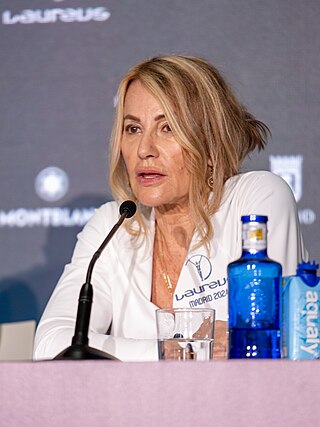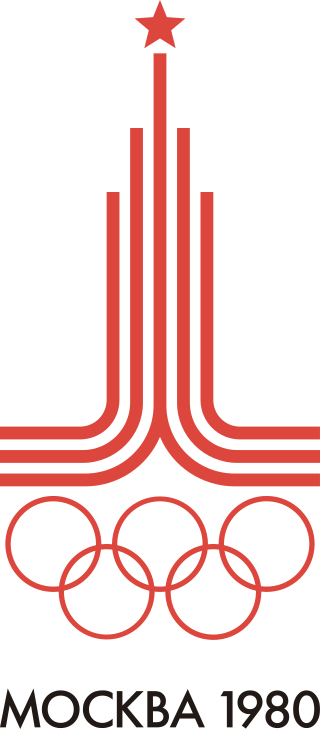This article needs additional citations for verification .(February 2024) |
This article needs additional citations for verification .(February 2024) |
During the 1970s, the Olympics took place four times, with Munich hosting the games in 1972 and Montreal playing host in 1976. The 1972 Summer games became victim to both terrorism and international controversy with ties to the ongoing Cold War situation. During the games, Palestinian terrorists killed two Israeli athletes and took nine hostages. After a failed rescue attempt, all hostages and all but three of terrorists were killed. The United States-Soviet Union basketball game was also embroiled in controversy. The U.S. basketball Olympic winning streak, which started in 1936, was ended by the Soviet Union team's close victory game.
The U.S. complained about errors in officiating but the victory by the Soviet Union was upheld. Among the 1972 Summer Olympic highlights was the performance of swimmer Mark Spitz, who set seven World Records to win a record seven gold medals in one Olympics, bringing his total to nine. Other notable athletes at the 1972 games were sixteen-year-old Olga Korbut, whose success in women's gymnastics earned three gold medals for the Soviet Union, and British athlete Mary Peters, who took home the gold in the women's pentathlon.
The 1976 Summer games in Montreal marked the first time the Olympic games were held in Canada. Mindful of the tragedy during the 1972 games, security was high during the Montreal games. Due to its policy on apartheid, South Africa was banned from the games. Even so, twenty-two other African countries sat out to protest. The 1976 Summer Olympics were highlighted by the legendary performance of 14-year-old Romanian female gymnast Nadia Comăneci, who scored seven perfect 10s and won 3 gold medals, including the prestigious All Around in women's gymnastics. The performance by Comăneci also marked the rise of legendary women's gymnastics coach Béla Károlyi, who went on to coach the U.S. team in both the 1988 and 1992 summer Olympic games. The 1976 Summer games also featured the strong U.S. boxing team, which consisted of Sugar Ray Leonard, Leon Spinks, Michael Spinks, Leo Randolph and Howard Davis Jr. The team won five gold medals and was arguably the greatest Olympic boxing team ever. In wrestling, Dan Gable won the gold medal in the 149-pound weight class without having a single point scored against him. Amazingly, this was done with a painful shoulder injury.
The Winter Olympics were held in Sapporo, Japan, in 1972 and Innsbruck, Austria, in 1976. Originally, Denver, Colorado, was supposed to host the '76 games, but voters rejected a plan to finance the venues needed and the IOC chose Innsbruck instead; the city had already had venues from hosting the 1964 Winter Olympics.

The 1976 Summer Olympics, officially known as the Games of the XXI Olympiad and officially branded as Montreal 1976, were an international multi-sport event held from July 17 to August 1, 1976, in Montreal, Quebec, Canada. Montreal was awarded the rights to the 1976 Games at the 69th IOC Session in Amsterdam on May 12, 1970, over the bids of Moscow and Los Angeles. It was the first and, so far, only Summer Olympic Games to be held in Canada. Toronto hosted the 1976 Summer Paralympics the same year as the Montreal Olympics, which still remains the only Summer Paralympics to be held in Canada. Calgary and Vancouver later hosted the Winter Olympic Games in 1988 and 2010, respectively. This was the first of two consecutive Olympic games held in North America, followed by the 1980 Winter Olympics in Lake Placid.
Ludmilla Ivanovna Tourischeva is a former Russian gymnast, Ukrainian gymnast coach, all-round Olympic champion and a nine-time Olympic medalist for the Soviet Union.

Nadia Elena Comăneci Conner is a Romanian retired gymnast. She is a five-time Olympic gold medalist, all in individual events. In 1976, at the age of 14, Comăneci was the first gymnast to be awarded a perfect score of 10.0 at the Olympic Games. At the same Games, she received six more perfect 10s for events en route to winning three gold medals. At the 1980 Summer Olympics in Moscow, she won two more gold medals and achieved two more perfect 10s. During her career, she won nine Olympic medals and four World Artistic Gymnastics Championship medals.

The 1980 Summer Olympics, officially known as the Games of the XXII Olympiad and officially branded as Moscow 1980, were an international multi-sport event held from 19 July to 3 August 1980 in Moscow, Soviet Union, in present-day Russia. The games were the first to be staged in an Eastern Bloc country, as well as the first Olympic Games and only Summer Olympics to be held in a Slavic language-speaking country. They were also the only Summer Olympic Games to be held in a self-proclaimed communist country until the 2008 Summer Olympics held in China. These were the final Olympic Games under the IOC Presidency of Michael Morris, 3rd Baron Killanin before he was succeeded by Juan Antonio Samaranch, a Spaniard, shortly afterwards.
1976 in sports describes the year's events in world sport.

Olga Valentinovna Korbut is a Belarusian retired gymnast who competed for the Soviet Union. Nicknamed the "Sparrow from Minsk", she won four gold medals and two silver medals at the Summer Olympic Games, in which she competed in 1972 and 1976 for the Soviet team, and was the inaugural inductee to the International Gymnastics Hall of Fame in 1988.

Artistic gymnastics is a discipline of gymnastics in which athletes perform short routines on different types of apparatus. The sport is governed by the Fédération Internationale de Gymnastique (FIG), which assigns the Code of Points used to score performances and regulates all aspects of elite international competition. Within individual countries, gymnastics is regulated by national federations such as British Gymnastics and USA Gymnastics. Artistic gymnastics is a popular spectator sport at many competitions, including the Summer Olympic Games.

Béla Károlyi is a former gymnastics coach; he is an ethnic Hungarian Romanian-American. Early in his coaching career he developed the Romanian centralized training system for gymnastics. One of his earliest protégés was Nadia Comăneci, the first Olympic Games gymnast to be awarded a perfect score. Living under the dictatorship of Nicolae Ceaușescu, Károlyi frequently clashed with Romanian officials. He and his wife defected to the United States in 1981.

The 1972 Summer Olympics, officially known as the Games of the XX Olympiad, took place in Munich, West Germany, from 26 August through 11 September 1972. A total of 7,134 athletes from 121 National Olympic Committees (NOCs) competed in 195 events from 23 sports.

Nellie Vladimirovna Kim is a retired Soviet and Belarusian gymnast of Sakhalin Korean and Tatar descent who won three gold medals and a silver medal at the 1976 Summer Olympics in Montreal, and two gold medals at the 1980 Summer Olympics in Moscow. She was the second woman in Olympic history to earn a perfect 10 score and the first woman to score it on the vault and on the floor exercise, rivaling Nadia Comăneci, Ludmilla Tourischeva, and other strong competitors of the 1970s.

Barthold Wayne Conner is a retired American Olympic gymnast. He was a member of the United States men's national artistic gymnastics team and won two gold medals at the 1984 Summer Olympics. He owns and operates the Bart Conner Gymnastics Academy in Norman, Oklahoma, along with his wife, Romanian Olympic gold medalist Nadia Comăneci. In addition, both Comăneci and Conner are highly involved with the Special Olympics.

Romania competed at the 1976 Summer Olympics in Montreal, Canada. 157 competitors, 103 men and 54 women, took part in 92 events in 11 sports.

The United States of America has sent athletes to every celebration of the modern Summer Olympic Games with the exception of the 1980 Summer Olympics, during which it led a boycott in protest of the Soviet invasion of Afghanistan. The United States Olympic & Paralympic Committee (USOPC) is the National Olympic Committee for the United States.

Ecaterina Szabo is a former Romanian artistic gymnast who won 20 Olympic, world and continental medals.

Aleksandr Nikolaevich Dityatin is a retired Russian gymnast, three-time Olympic champion, and Honoured Master of Sports of the USSR. Winning eight medals at the 1980 Summer Olympics, he set the record for achieving the most medals of any type at a single Olympic Games. The American swimmer Michael Phelps has now twice equalled this record, at Athens 2004 and Beijing 2008. Dityatin competed for the Leningrad Dinamo sports society.

Teodora Ungureanu is a Romanian former gymnast who competed at the 1976 Summer Olympics. She is a three-time Olympic medalist and a world championships silver medalist. After retiring from gymnastics she has enjoyed a successful career as a gymnastics coach.
Sport in Romania is an important part of the country's culture. Romania has risen to prominence in a number of sporting areas in recent decades. Association football is the most popular sport in Romania, a nation of 20 million. The most successful club is Steaua Bucharest, who were the first Eastern European side to win the European Cup and the European Supercup in 1986. Romania is one of only four national teams from Europe that took part in the first World Cup in 1930. The Romania national football team has taken part in seven FIFA World Cups and had its most successful run during the 1990s, when they reached the quarterfinals of the 1994 FIFA World Cup, losing to Sweden in the penalty shootout. Romania was ranked third by FIFA in 1997.

Gertrúd Emilia Eberle is a retired Romanian gymnast of German-Hungarian descent.
The Romania women's national artistic gymnastics team represents Romania in FIG international competitions.